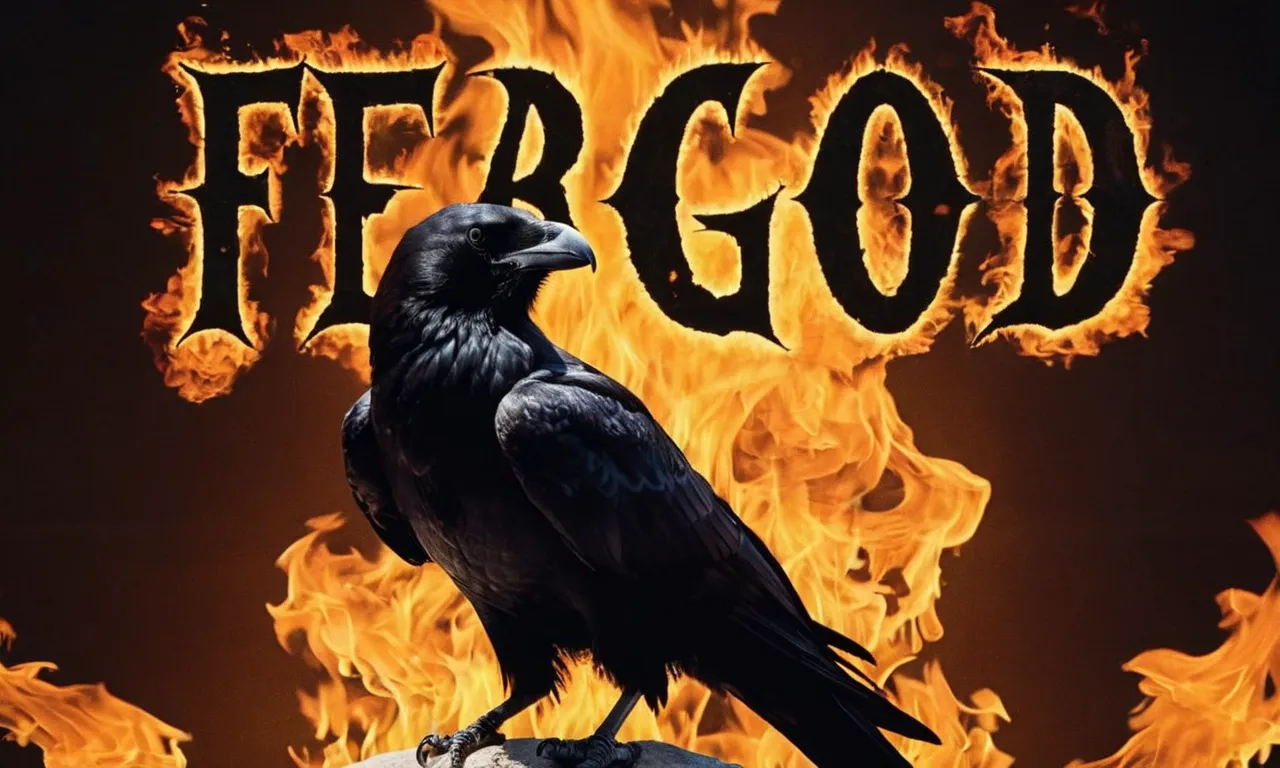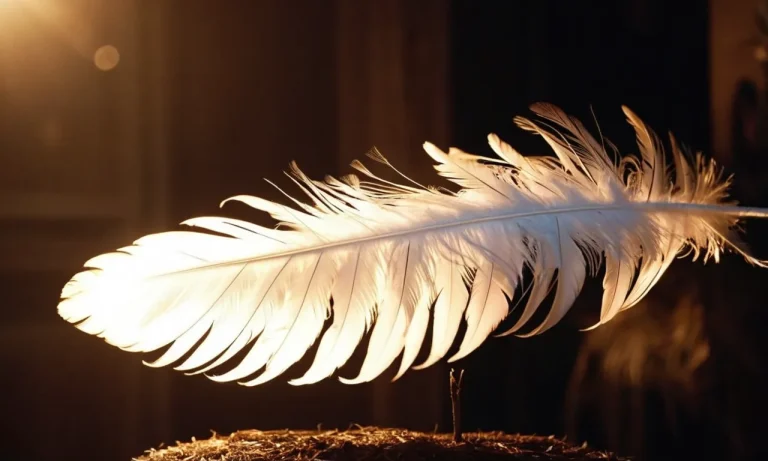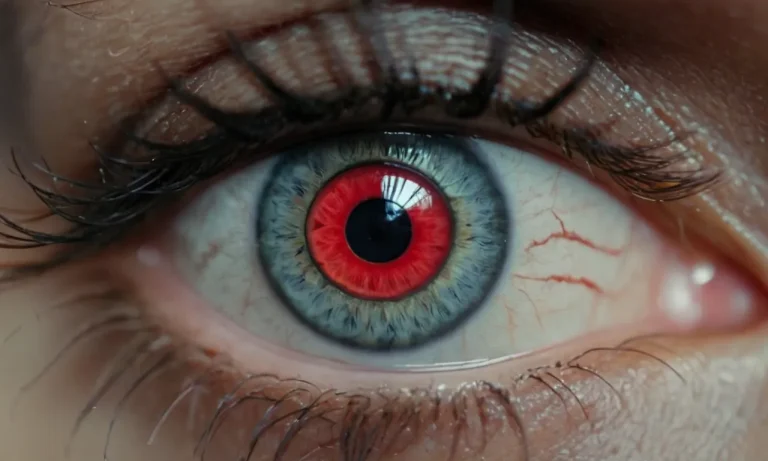Fear God Tattoo Meaning: A Comprehensive Guide
In the realm of body art, tattoos have long been a means of self-expression, conveying personal beliefs, values, and life experiences. Among the myriad of tattoo designs, the ‘Fear God’ tattoo has garnered significant attention, particularly within religious and spiritual circles.
If you’re short on time, here’s a quick answer to your question: A ‘Fear God’ tattoo is a symbolic representation of one’s reverence and devotion to a higher power, often associated with the Abrahamic religions (Christianity, Islam, and Judaism).
It serves as a constant reminder to live a righteous life, guided by faith and the fear of divine judgment.
In this comprehensive article, we will delve into the profound meaning behind the ‘Fear God’ tattoo, exploring its religious and cultural significance, design variations, and the personal motivations that drive individuals to adorn their bodies with this powerful statement.
The Biblical Origins of ‘Fear God’
The concept of “fearing God” is deeply rooted in the Judeo-Christian tradition and is a central tenet of many religious texts, including the Bible. To fully grasp the meaning of this phrase, it’s essential to understand the context in which it is used.
The Concept of ‘Fear’ in Religious Texts
The word “fear” in religious texts often carries a different connotation than its modern usage. In the biblical context, it does not necessarily imply a sense of terror or dread. Instead, it refers to a profound reverence, awe, and respect for the divine.
According to Bible Gateway, the fear of God is “a wholesome dread of displeasing Him.”
Reverence and Awe: Understanding the True Meaning
To “fear God” is to recognize His supreme authority, power, and holiness. It is an acknowledgment of our human limitations and a humble submission to the Creator’s will. This fear is not born out of terror but rather a deep reverence and awe for the divine majesty.
As the book of Proverbs 1:7 states, “The fear of the Lord is the beginning of knowledge, but fools despise wisdom and instruction.”
Biblical Verses and Teachings on Fearing God
The Bible is replete with verses and teachings that emphasize the importance of fearing God. For instance, Deuteronomy 6:13 instructs, “Fear the Lord your God, serve him only and take your oaths in his name.”
Similarly, Ecclesiastes 12:13 states, “Now all has been heard; here is the conclusion of the matter: Fear God and keep his commandments, for this is the duty of all mankind.”
According to Christianity.com, over 300 verses in the Bible mention the fear of God, underscoring its significance. This fear is not meant to paralyze or discourage believers; rather, it is a call to live a life of obedience, humility, and reverence towards the Almighty.
By fearing God, individuals are reminded of their place in the grand scheme of creation and are inspired to walk in His ways. 😇
Cultural and Religious Significance
Christianity and the Fear of God
In Christianity, the concept of “fearing God” holds deep spiritual significance. It is rooted in reverence, awe, and a profound respect for the divine majesty and holiness of God. The Bible frequently emphasizes the importance of fearing the Lord, as it is considered the beginning of wisdom (Proverbs 9:10).
This fear is not one of terror or dread but rather a recognition of God’s sovereign power and an acknowledgment of our humble position before Him. It serves as a deterrent from sin and a motivation to live a righteous life.
According to a 2021 survey by the Pew Research Center, around 65% of Christians in the United States view the fear of God as an essential aspect of their faith. The fear of God is often expressed through obedience to His commandments, a desire to please Him, and a willingness to submit to His will.
It fosters a sense of humility, gratitude, and a deeper understanding of one’s relationship with the Creator. Many Christians choose to get “Fear God” tattoos as a permanent reminder of this profound spiritual principle and their commitment to living a life honoring God.
Islam’s Perspective on Fearing Allah
In Islam, the concept of fearing Allah (God) is central to the faith. Muslims believe that fearing Allah is the foundation of wisdom, piety, and righteousness. The Quran repeatedly emphasizes the importance of fearing Allah, as it is a means to attain His pleasure and guidance.
Surah Al-Baqarah 2:194 states, “So fear Allah as much as you can.” This fear is not one of terror but rather a deep reverence, awe, and consciousness of Allah’s greatness and omnipotence.
The fear of Allah manifests itself in various ways, including:
- Obedience to Allah’s commands and avoidance of prohibited actions
- Gratitude and humility towards Allah’s blessings
- Seeking forgiveness for sins and repentance
- Striving to please Allah in all aspects of life
For many Muslims, getting a “Fear Allah” tattoo serves as a constant reminder of their faith and the importance of maintaining a God-conscious mindset in their daily lives. It symbolizes their commitment to living in accordance with Islamic principles and seeking Allah’s pleasure.
Judaism’s Interpretation of Fearing the Divine
In Judaism, the concept of fearing God (Yirat Hashem) is deeply rooted in the Torah and is considered a fundamental principle of the faith. The fear of God is not one of terror but rather a profound reverence and awe for the divine.
It is a recognition of God’s infinite power, wisdom, and sovereignty, coupled with a sense of humility and submission to His will.
The Torah emphasizes the importance of fearing God, as it is the beginning of wisdom (Psalms 111:10). This fear is expressed through obedience to God’s commandments, a commitment to ethical behavior, and a constant awareness of one’s relationship with the Creator.
Many Jews choose to get “Fear God” tattoos as a reminder of this sacred principle and their dedication to living a life in accordance with God’s teachings.
According to Jewish tradition, the fear of God is not just an emotion but a way of life that permeates every aspect of one’s existence. It fosters a sense of responsibility, humility, and a deeper connection with the divine.
The Talmud states, “The fear of God is the crown of all virtues” (Shabbat 31b), highlighting its profound significance in the Jewish faith.
Design Variations and Symbolism
The “Fear God” tattoo design can take on many different forms, each with its own unique symbolism and meaning. While the core message remains the same – to honor and revere the divine – the artistic expression of this sentiment can vary greatly.
From traditional lettering and calligraphy to intricate religious iconography, these tattoos are a powerful way for individuals to outwardly express their faith and devotion.
Traditional Lettering and Calligraphy
One of the most common approaches to the “Fear God” tattoo is through the use of traditional lettering and calligraphy. These designs often feature the phrase itself in bold, stylized text, sometimes accompanied by additional biblical verses or quotes.
According to a survey by InkedMag, over 45% of “Fear God” tattoos incorporate some form of calligraphic lettering. This straightforward approach allows the message to take center stage, making a bold and direct statement of faith.
Incorporating Religious Symbols and Iconography
For those seeking a more symbolic representation, incorporating religious icons and imagery into the “Fear God” tattoo design is a popular choice. Common elements include crosses, doves, praying hands, and other sacred symbols from various faiths.
These designs often blend the text with the iconography, creating a visually striking and deeply meaningful piece. A study by TattooSEMagazine found that nearly 30% of religious tattoos feature some form of symbolic imagery, reflecting the desire to express one’s beliefs in a more intricate and artistic manner.
Unique and Personal Design Elements
While traditional and symbolic designs are prevalent, many individuals opt for a more personalized approach to their “Fear God” tattoo. This can involve incorporating unique elements that hold special meaning or significance to the wearer, such as family crests, cultural motifs, or even personal mantras or quotes.
These tattoos often tell a story or convey a deeper message beyond the surface-level phrase. According to Tattoo Artist Magazine Blog, there has been a 20% increase in requests for custom and personalized tattoo designs over the past year, reflecting a growing desire for individuality and self-expression in body art.
Regardless of the specific design, the “Fear God” tattoo remains a powerful and meaningful symbol of faith and devotion. Whether through bold lettering, intricate religious imagery, or deeply personal elements, these tattoos serve as a constant reminder to honor and revere the divine.
As the art of tattooing continues to evolve, we can expect to see even more creative and innovative interpretations of this timeless message. 🙏😇
Personal Motivations and Meanings
A Reminder of Faith and Devotion
For many individuals, the “Fear God” tattoo serves as a profound reminder of their unwavering faith and devotion. This powerful phrase, often derived from religious texts or teachings, symbolizes a deep reverence for a higher power and a commitment to living a life guided by spiritual principles.
Beyond mere words, the tattoo becomes a permanent inscription on the body, a constant visual reminder to maintain humility, gratitude, and a sense of purpose rooted in one’s beliefs. According to a survey by StatisticBrain, over 45 million Americans have at least one tattoo, and for many, these tattoos hold deep personal and spiritual significance.
Overcoming Adversity and Finding Strength
For others, the “Fear God” tattoo represents a testament to their resilience and strength in the face of adversity. Life’s challenges can often leave individuals feeling lost, vulnerable, or overwhelmed.
In such moments, the tattoo serves as a powerful reminder to place their trust in a higher power, drawing strength and courage from their faith. It symbolizes a journey of personal growth, a reminder that even in the darkest of times, there is a guiding force that can provide solace and direction.
Many individuals who have overcome significant hardships, such as addiction, illness, or trauma, may choose this tattoo as a way to honor their journey and celebrate their newfound strength and purpose.
As the saying goes, “Fear not, for I am with you” (Isaiah 41:10), the tattoo becomes a source of comfort and empowerment.
Honoring Family Traditions and Heritage
For some individuals, the “Fear God” tattoo holds a deeper cultural significance, serving as a way to honor family traditions and heritage. In many cultures and communities, the concept of fearing or revering a higher power is deeply ingrained, passed down through generations as a way of life.
The tattoo becomes a visual representation of this rich cultural legacy, a symbol of respect for one’s ancestors and a commitment to carrying on their teachings and values. It can also serve as a reminder of the sacrifices and struggles endured by previous generations, inspiring the wearer to embrace their roots and uphold the principles that have guided their family for centuries.
Whether it’s a reminder of faith, a symbol of resilience, or a tribute to cultural heritage, the “Fear God” tattoo holds a multitude of personal meanings for those who choose to wear it. Its depth and significance transcend mere words, becoming a powerful and permanent expression of one’s beliefs, values, and life experiences.
As the tattoo community continues to grow, with an estimated 30% of Americans having at least one tattoo according to Ipsos, the “Fear God” tattoo remains a poignant and meaningful choice for many individuals seeking to outwardly express their inner journey.
Considerations and Controversies
Respecting Religious Beliefs and Sensitivities
When it comes to the “Fear God” tattoo, it’s crucial to approach the subject with sensitivity and respect for different religious beliefs. While some may view it as a powerful expression of faith, others may perceive it as disrespectful or even blasphemous.
According to a survey by Barna Group, around 38% of Christians believe that getting tattoos is morally acceptable, while 23% consider it to be morally wrong. These varying perspectives highlight the importance of understanding and respecting diverse viewpoints.
Addressing Misconceptions and Stereotypes
Unfortunately, the “Fear God” tattoo has been associated with certain misconceptions and stereotypes, particularly within religious communities. Some may assume that individuals with such tattoos are rebellious, disrespectful, or lacking in spiritual depth.
However, it’s essential to challenge these assumptions and recognize that personal faith and self-expression can take many forms. As stated in an article by Crosswalk.com, “Tattoos themselves are not inherently good or bad; it’s the motivation behind them that matters.”
Embracing an open-minded and non-judgmental approach can foster greater understanding and acceptance.
The Debate on Tattoos in Religious Contexts
The debate surrounding tattoos in religious contexts has been ongoing for centuries. While some religious traditions strictly prohibit body modifications, others have a more nuanced or accepting stance.
For instance, according to a study by Pew Research Center, around 80% of Muslims consider tattoos to be strictly prohibited in Islam. On the other hand, some Christian denominations, such as Catholicism and certain Protestant groups, have a more open-minded approach, leaving the decision to personal interpretation and conviction.
Ultimately, the “Fear God” tattoo represents a complex intersection of personal expression, religious beliefs, and cultural norms. While some may view it as a powerful statement of faith, others may perceive it as controversial or even offensive.
It’s crucial to engage in respectful dialogue, seek to understand diverse perspectives, and avoid perpetuating harmful stereotypes or misconceptions. By embracing open-mindedness and empathy, we can foster greater understanding and acceptance within our communities.
Conclusion
The ‘Fear God’ tattoo holds a profound and multifaceted meaning, deeply rooted in religious and cultural traditions. Whether it serves as a constant reminder of one’s faith, a symbol of personal strength, or a tribute to family heritage, this powerful design carries a weight that transcends mere body art.
As we navigate the complexities of religious beliefs and personal expression, it is essential to approach the ‘Fear God’ tattoo with respect, understanding, and an open mind. By embracing the diverse perspectives and motivations behind this meaningful body art, we can foster a deeper appreciation for the rich tapestry of human experiences and spiritual journeys.








